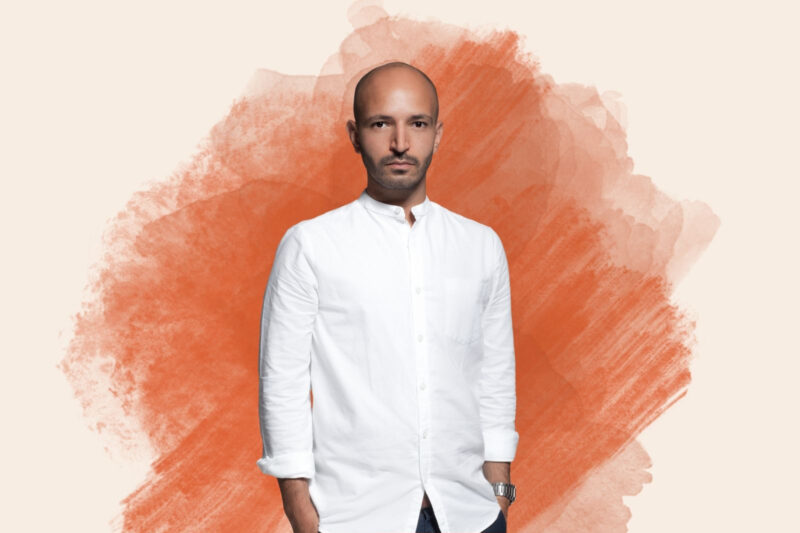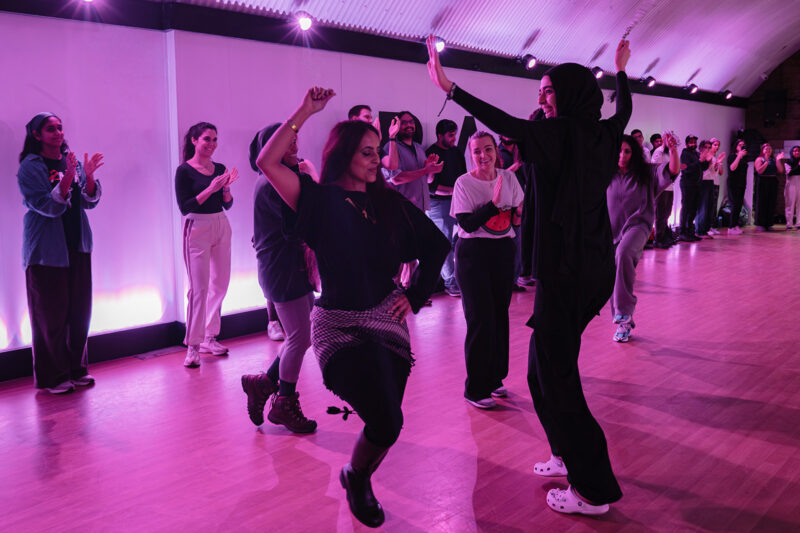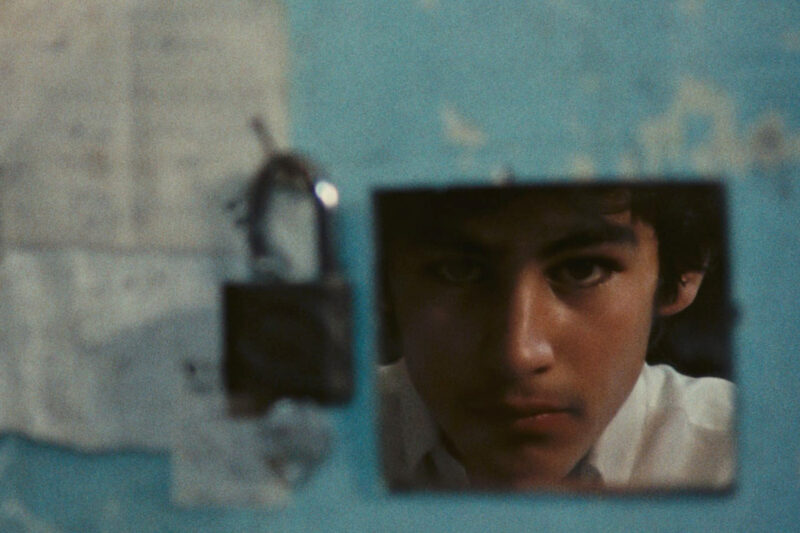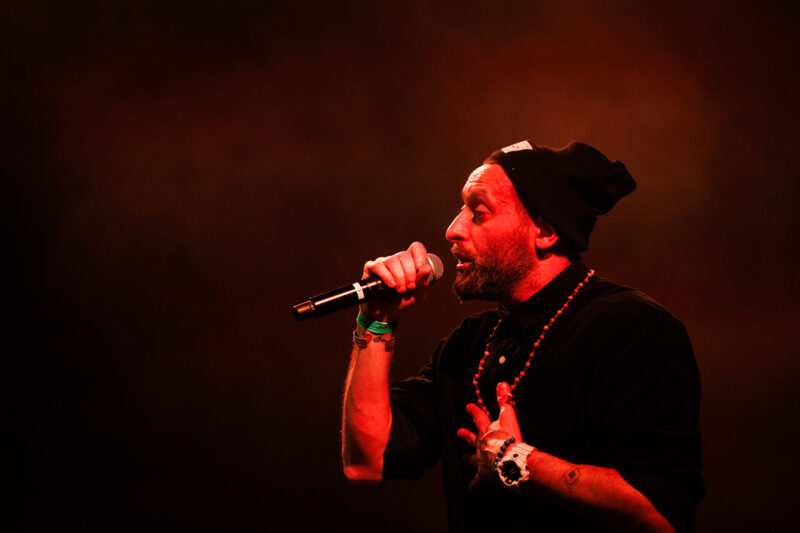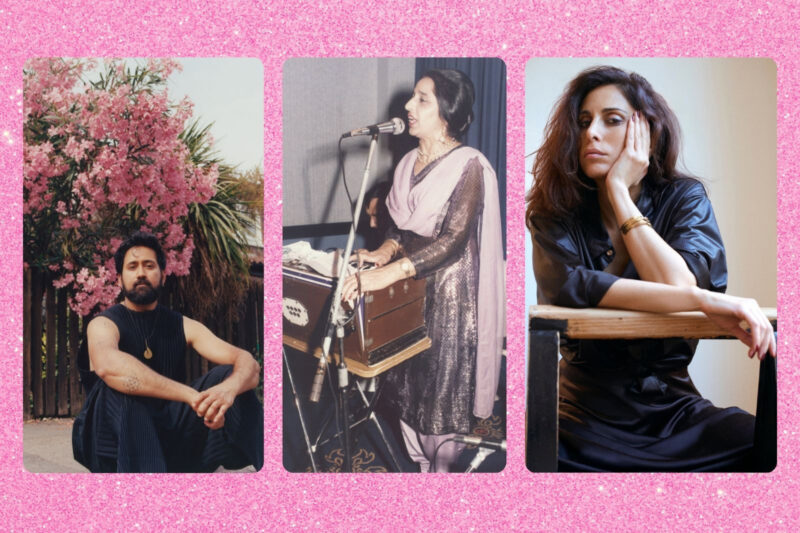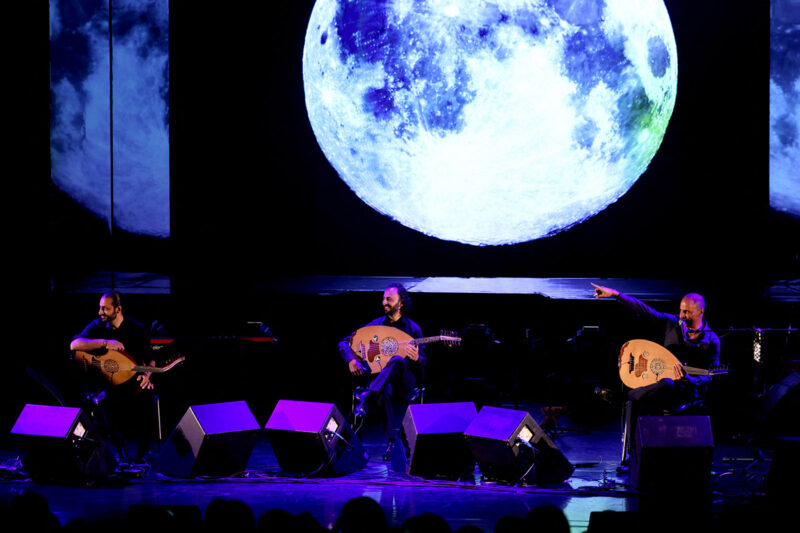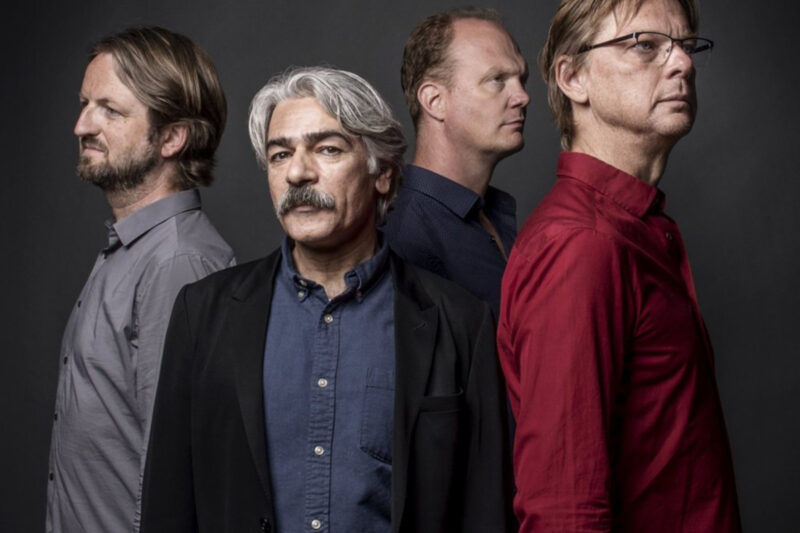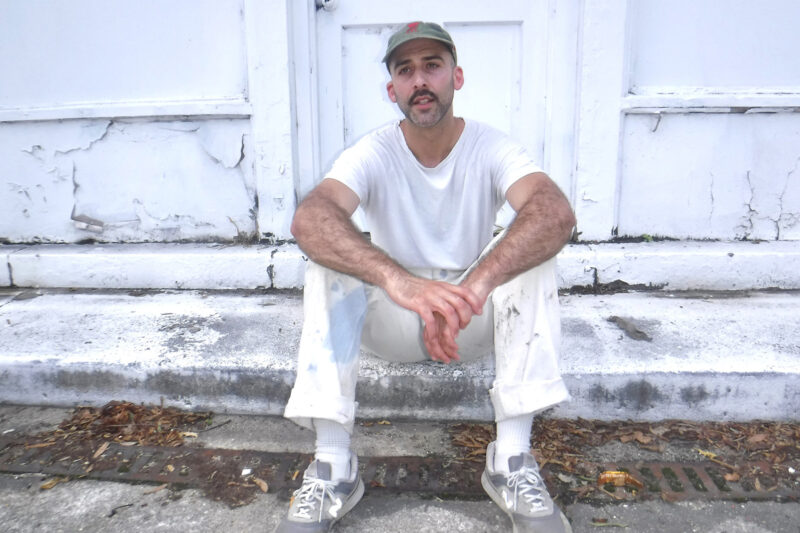‘Myths bring us together’: The Halfway Kid on the power of folk music as storytelling and protest
The British-Sudanese singer’s new album explores the beauty and struggles of being part of a large migrant family, while processing the realities of a home torn apart by war
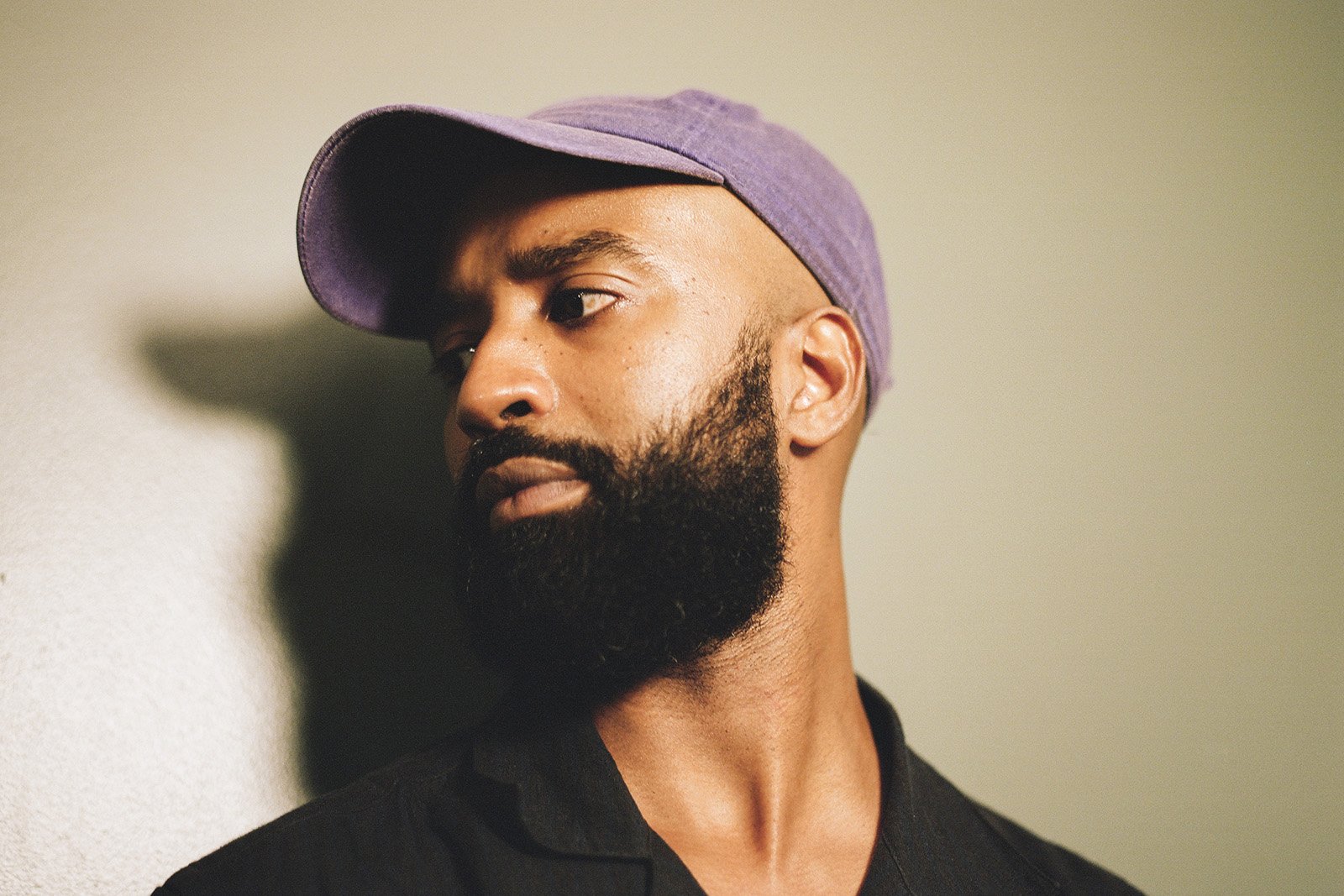
When fighting broke out between rival military factions in Sudan in April 2023 — and the war was still in its infancy — British-Sudanese folk singer Saeed Gadir cancelled his gig at London’s The Social. Gadir, an independent artist known by his musical moniker The Halfway Kid, had worked hard to raise his profile. Still, he didn’t think twice about it.
“It was an easy decision to make,” Gadir recalls. “You just don’t feel like promoting your album or singing.” Members of his family were still in Sudan as the power struggle between the Sudanese Armed Forces and the paramilitary Rapid Support Forces turned deadly. The conflict has since escalated into one of the world’s worst humanitarian disasters.
The tension of experiencing “banality” in the UK as his family and community abroad suffered formed the backdrop for Gadir’s second album, Myths in Modern Life, released on 18 October. “Myths are these stories that bring us together,” Gadir says. With a crippled media landscape in Sudan, the singer was acting as a middle man to disseminate information he had gathered from social media to his family. “You still wake up and have breakfast, go to work, and then you check in with your family about how much electricity they have left.” Gadir’s relatives have since escaped — and for this he is grateful — with many of them now trying to rebuild their lives in Cairo.
Comprising 10 tracks, Gadir’s new folk album is, he says, a storytelling exercise about the beauty and struggles of being part of a large migrant family, navigating life, and contending with war on a personal level. It follows his debut If I Don’t Go Home Go to My House and Burn All My Things, released in April 2023. Gadir says he was very intentional with his studio time, favouring precision over experimentation. He also prefers recording live, allowing instruments and vocals to collide in real time and feel “alive”.
Across Myths in Modern Life, Gadir’s voice oscillates between softness and urgency as his London accent shines through vulnerable lyrics. He says he wanted to create a “truthful” album that gathered all the threads that form the immigrant experience. “I really wanted to speak directly and tell stories that don’t get told as much. Stories of what it’s like living in the city, having to navigate working life and rising rents and the pressures, and trying to build and maintain relationships.”
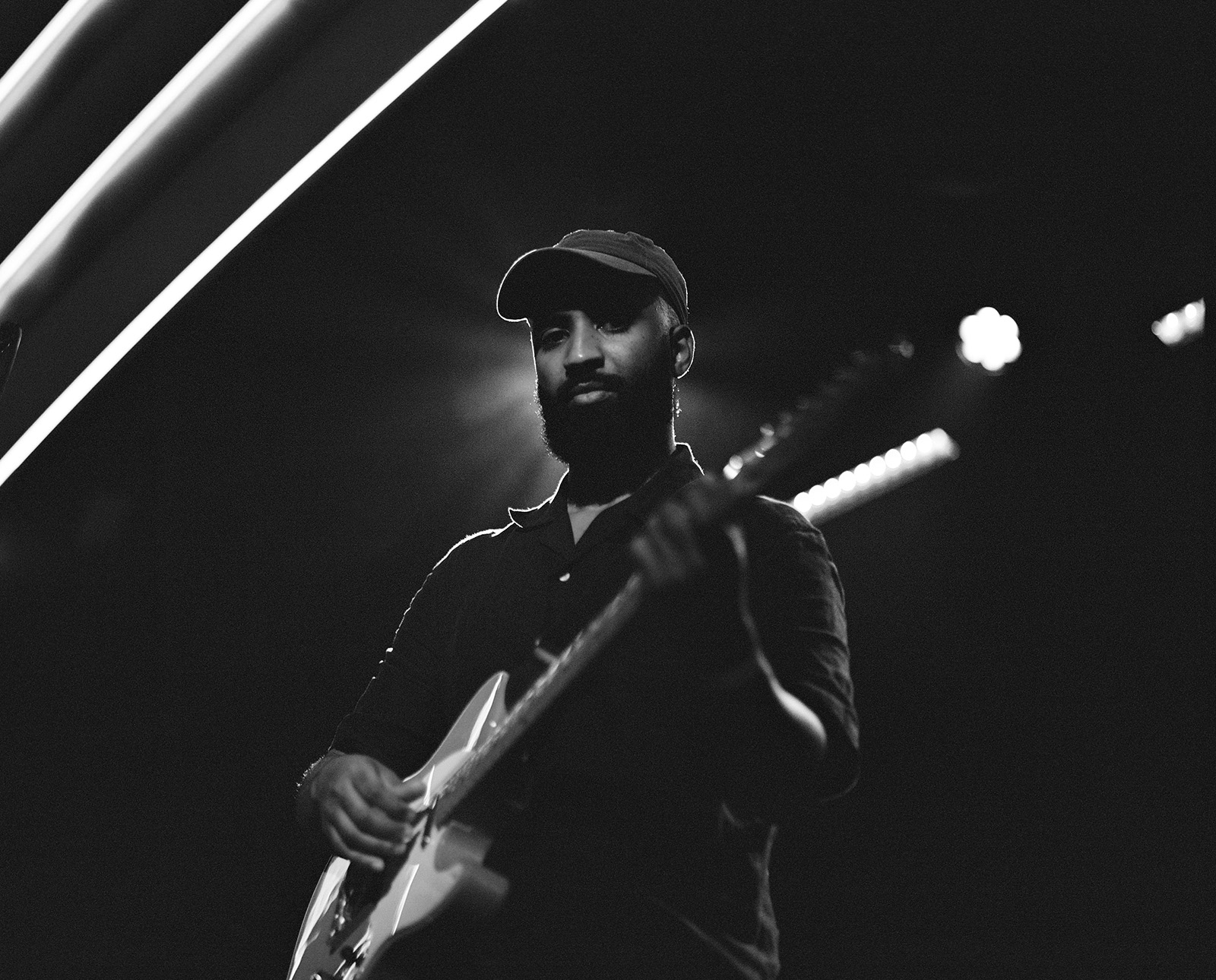
Among the tracks are OK, Sometimes I Feel Like Exploding, a song about the toll of working two jobs, and Immigrant Song, which explores themes of displacement with an Afrobeat twist added to Gadir’s tender guitar playing. “It’s about people’s relationship to home on one level, but on another level it’s about these grand fantasies that you’re presented with when you’re born,” he says. He wanted the track to have sharp, honest lyrics, but still get people dancing at his gigs.
Born in west London to Sudanese parents who migrated in the 1980s, Gadir spent many summers visiting his grandparents in Sudan. He grew up hearing traditional folk music in the house, such as oud player Abdel Karim Alkabli, also known as Kably. Gadir’s uncle is an archivist and introduced him to a recording of Kably in Hamburg, Germany, where his oud broke and he had to play the electric guitar. “Sudanese folk songs on the electric changed my life,” he says. But in his youth Gadir was preoccupied with other sounds. “I didn’t listen to any of it at that time. I was mainly listening to hip-hop, R&B, rock’n’roll,” he recalls. When Gadir turned 18 and began to seriously consider songwriting, he felt alienated by the surge of alternative R&B that defined the moment.
Instead, he turned to the storytellers of the past to make sense of his present. He was drawn to Bob Dylan’s early protest music and the songwriting of Joni Mitchell, as well as Nina Simone and Ray Charles. “I felt that was more reflective of everyday life,” Gadir says. Dylan in particular imprinted on Gadir: “It was really influential because it felt like all the things I believed, all the things I enjoy most about music, were in his songs.” Now, Gadir’s work straddles all these musical influences and repackages the sounds for contemporary listeners. In a track titled Anything to You, which is about Gadir’s experience of falling in love during the war, he borrowed a lyric from the Nubian folk singer Hamza El Din which reads: “His addresses are sentences etched into dreams.”
To Gadir, the folk genre — with oral storytelling at the centre — felt like a “truthful” role the singer could play to lift society’s tribal barriers. “Travelling around and telling these stories of what’s happening in the next town over, or next building over, that is what I’m supposed to be doing for the rest of my life.” At its core, Gadir’s music deals with feelings of displacement and what it means to build a multifaceted identity. He wants these songs to feel like a hand reaching out to his listeners: “The thing that I love the most as a listener of music is when you feel a song is for you. It’s a conversation, it’s intimate.”
As we talk, Gadir is set to headline his biggest show yet at north London’s Lafayette on 20 October. He hopes his audience comes away “feeling seen”. Playing live has made him a better songwriter, he says, and he often finds he is moved by the “sense of connection” he feels towards everyone in the room when he is performing. “I never imagine a song where someone is talking at me, I always imagine a speaker is speaking to me. That sense of catharsis and someone recognising a truth or reality that you’re portraying feels amazing.”
The Halfway Kid is playing at the Exchange, Bristol, on 1 November, and The Folklore Rooms in Brighton on 2 November.
 Newsletter
Newsletter



